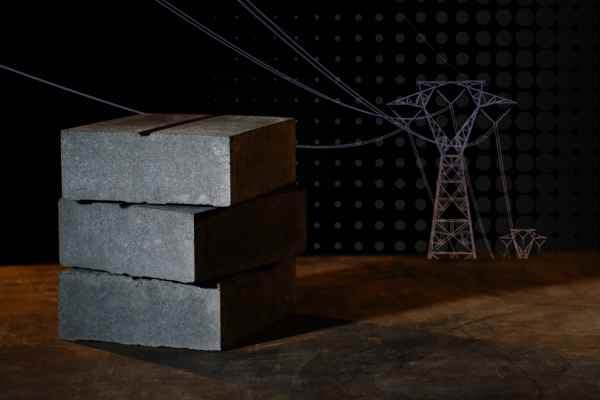Awards triumph for MGA Thermal
Sustainability pioneers take their place in the spotlight at Sydney climate-tech fest.

An energy startup has scooped the Impact Award at the Australian Climate Tech Awards, recognising its novel approach to energy storage.
Hosted last week by industry networking group, Climate Salad, the awards celebrated a number of climate innovators driving sustainability initiatives across the country.
MGA Thermal, based in the Hunter region, was awarded the Impact Award for its innovative heated blocks that provide a scalable solution for storing renewable energy as clean steam and power in industrial settings.
By transforming variable renewable energy into a consistent supply of heat and electricity, it aims to address a key challenge in grid decarbonisation, helping industries to use renewable energy as a primary heat source instead of burning natural gas or coal.
"Being acknowledged by the Climate Salad tech community is an honour and a testament to our drive to make continuous renewable energy a reality."
MGA's stackable blocks are made from metal alloy particles held in a matrix, that melt as they are heated, absorbing energy. The energy is stored in the solid-to-liquid phase change and then released as the blocks cool and the particles become solid again.
The shoebox-sized thermal blocks, called Miscibility Gap Alloys (MGA), are designed to store clean energy as heat to either use as green steam in industry or continuously power the electricity grid.
“Being acknowledged by the Climate Salad tech community is an honour and a testament to our drive to make continuous renewable energy a reality,” the company said.
Success in the spotlight
Several other climate tech trailblazers were also recognised at the Climate Tech awards. Karen Joyce, co-founder of GeoNadir, received the Woman in Climate Tech Award for her drone mapping platform, which aids in the analysis of critical environmental data.
The Newcomer Award went to Ivygo, a peer-to-peer platform easing EV charging for those unable to install home chargers.
SORR secured the Global Growth Award for its sponge technology which captures pollutants like PFAS, plastics, and hydrocarbons before they enter ecosystems. Designed with circular economy principles, the sponges are recyclable and reusable.
The Eureka Award went to Novalith for its innovative process to extract rock-based lithium using carbon dioxide. Its method eliminates the need for traditional brine extraction, resulting in a lower-carbon, environmentally sustainable supply of lithium for battery production.
Climate Salad is an industry network of climate tech entrepreneurs, scientists, researchers, mentors, investors and advocates with the goal of boosting climate innovation in Australia. It says its primary aim is to "help those that are building technology solutions to climate problems get more customers, find great people and grow to their full potential".





